Life
Vérone was born on June 20, 1874, in Paris, France. [1] She served as secretary at the International Congress of Freethinkers when she was 15 years old. In 1903 she became the first woman to plead before French appeals court. [4] She supported herself as a teacher, but was dismissed for her political opinions and unionizing activities. [5] [1]
Vérone became a reporter for the French feminist newspaper La Fronde, which was published by Marguerite Durand. [5] Her journalism on legal and judicial matters led to her interest in becoming a lawyer. In 1907 Vérone, a single mother of two, was admitted to the French bar. [1]
Vérone served as president of Ligue Française pour le Droit des Femmes for 20 years. [3] [4]
Vérone died on May 24, 1938, in Paris. [1]
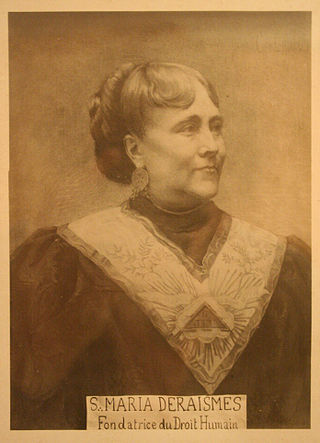
Maria Deraismes was a French author, Freemason, and major pioneering force for women's rights.

Marie Popelin was a Belgian jurist and early feminist political campaigner. Popelin worked with Isabelle Gatti de Gamond in the development of women's education and, in 1888, became the first Belgian woman to receive a doctorate in law. After her accession to the bar was refused, Popelin went on to have an active career as the leader of the Belgian League for Women's Rights. She died in 1913 without ever gaining admission to the bar.
Antoinette Fouque was a French psychoanalyst who was involved in the French women's liberation movement. She was the leader of one of the groups that originally formed the French Women's Liberation (MLF), and she later registered the trademark MLF specifically under her name. She helped found the publishing house Éditions des Femmes as well as the first collection of audio-books in France, "Bibliothèque des voix". Her position in feminist theory was primarily essentialist, and heavily based in psychoanalysis. She helped author Le Dictionnaire universel des créatrices (2013), a biographical dictionary about creative women.
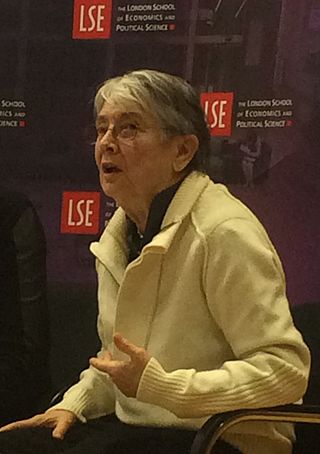
Christine Delphy is a French feminist sociologist, writer and theorist. Known for pioneering materialist feminism, she co-founded the French women's liberation movement in 1970 and the journal Nouvelles questions féministes with Simone de Beauvoir in 1981.

Marie Bonnevial was a French teacher and women's rights activist. She became Grand Mistress of the Supreme Council of Le Droit Humain.

Eliska Vincent was a Utopian socialist and militant feminist in France. She argued that women had lost civil rights that existed in the Middle Ages, and these should be restored. In the late 1880s and 1890s she was one of the most influential of the Parisian feminists. She created extensive archives on the feminist movement of the 19th and early 20th centuries, but these have been lost.

Léon-Pierre Richer was a French free-thinker, freemason, journalist and feminist who worked closely with Maria Deraismes during the early years of the feminist movement in Paris. He edited Le Droit des femmes, a feminist journal that appeared from 1869 to 1891. He was founder of the Ligue française pour le droit des femmes, one of the main feminist organizations in France in the 1880s. However, Richer was concerned that women were not sufficiently educated in republican principles, and that giving them the vote could cause a clericalist and monarchist reaction and the loss of democracy.

Marianne Rauze was a French journalist, feminist, socialist, pacifist and communist.

Laure Adler is a French journalist, writer, publisher and radio/TV producer.

Christiane Collange was a French journalist and author.

Maria Pognon née Rengnet was a French journalist, editor, feminist, suffragist, pacifist and freemason, who is remembered for her success as a women's rights activist in the late 19th century. From 1892 to 1903, she was president of the Ligue Française pour le Droit des Femmes, and was also a member of the pacifist association Société française pour l'arbitrage entre nations. As a freemason, she was one of the 17 founders of the Loge du Droit humain, which was open to both men and women.
Louise van den Plas was a Belgian suffragist and the founder of the first Christian feminist movement in Belgium.
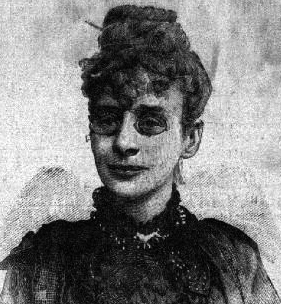
Marie-Rose Astié de Valsayre was a French violinist, feminist, nurse and writer, who is remembered for attempting to overturn legislation prohibiting women from wearing trousers and for a fencing duel she had with an American woman. After studying medicine, she had provided emergency services during the Franco-Prussian War in 1870. In 1889, she created the Ligue de l'Affranchissement des femmes calling for women to be added to the electoral lists.

Yvonne Netter was a French advocate, journalist, campaigner for feminism and Zionism and an active member of the French Resistance during the Vichy France period. She was arrested and interned in three French-run camps before being helped to escape.
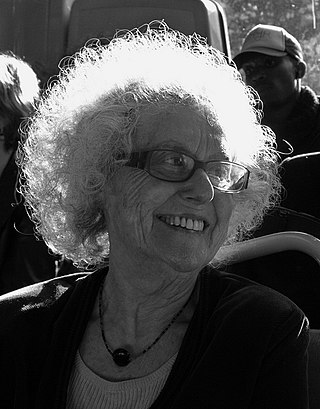
Jacqueline Feldman is a French sociologist and author. She worked as a researcher for the French National Centre for Scientific Research until retirement in 2001, but has continued to publish until 2020. She co-founded FMA, one of the ancestors that later would become Mouvement de libération des femmes in 1970.
Annie Sugier is a French nuclear physicist. She came to prominence in 1989 as the first woman to be promoted to a directorship at France's "Alternative Energies and Atomic Energy Commission" . The focus of her responsibilities at the CEA was on the dismantling of nuclear installations. She is better known to many for her role as a committed and eloquent feminist activist. She has served for many years as president of the "Ligue du droit international des femmes", founded in 1983 by her friend and mentor, Simone de Beauvoir.

Anna Féresse-Deraismes was a French feminist activist for women's rights and a Freemason. She was appointed honorary president of the International Congress of Women in 1896 and 1900, and was a founding member of the first mixed-gender Masonic Order, Le Droit Humain. Maria Deraismes was her sister.

Alice Jouenne was a French educator and socialist activist. During the interwar period, Jouenne focused on education, pacifism, and feminism. She was one of the founders of Éducation nouvelle en France.
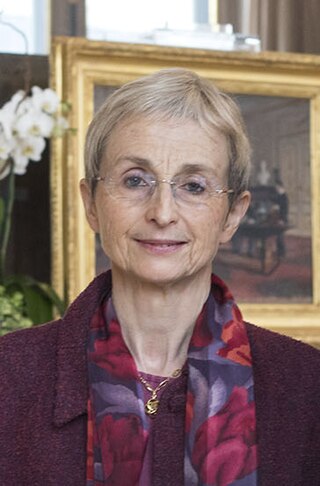
Françoise Thébaud is a French historian, professor emeritus of history, and specialist in the history of women. In 2017, she was awarded the Chevalier of the Légion d'honneur.
Femmes solidaires is a French feminist association in France, founded during the Second World War under the name Union des femmes françaises (UFF). The movement works for the defense and advancement of women's rights, gender equality, the liberal movement and international solidarity.
















